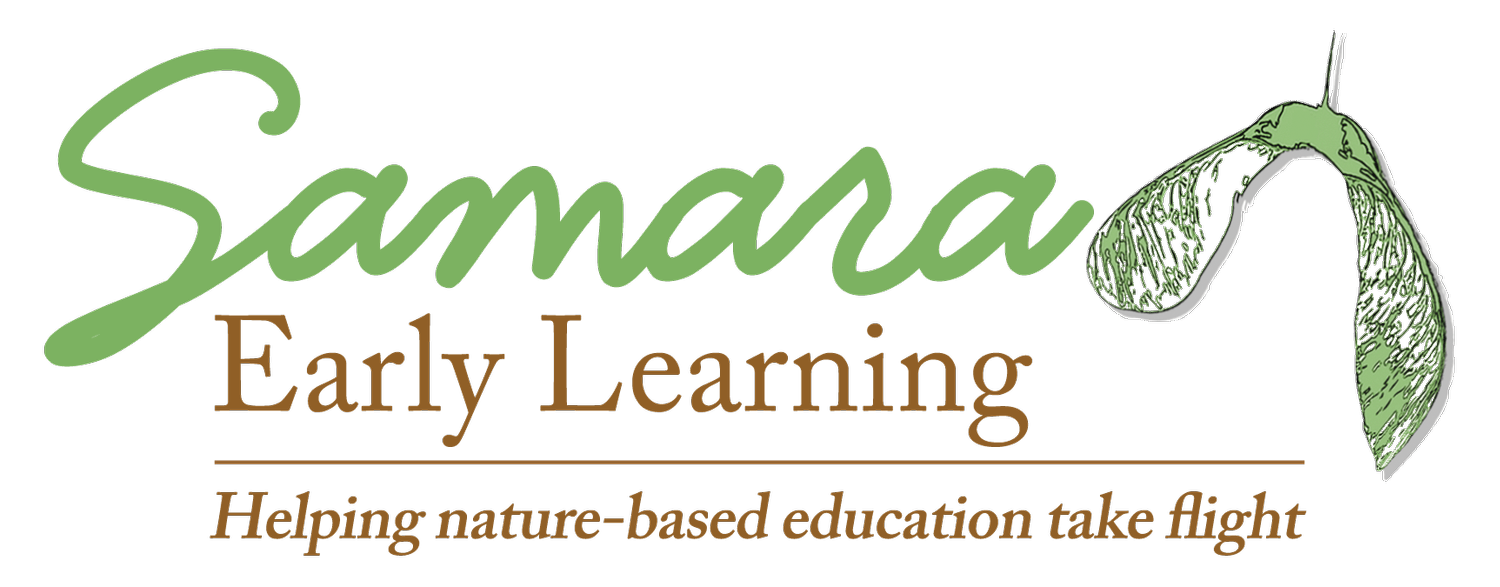Planning for emergent curriculum
This post originally appeared in Dr. Rachel A. Larimore’s weekly Samara newsletter on November 16, 2021. If you’re interested in receiving these emails, scroll to the bottom of this page to subscribe.
I saw my first dark-eyed junco last week—this bird comes south to Michigan from Canada for the winter months. Their white undersides make me think of snow every time I see them. While we didn’t have snow when I first spotted them last week, we did get our first real snowfall on Sunday. These are sure signs, along with the diminishing daylight, that winter is on its way.
Last week during a webinar inside The Grove, Samara’s online community of nature-based educators, we talked about winter events in relation to planning for emergent curriculum.
That’s right, I said planning for emergent curriculum. All too often I hear people talk about emergent curriculum as though it's a free for all with no planning involved at all. Not true! In fact, in many ways emergent curriculum takes more work and planning than pre-determined themes.
Emergent curriculum focuses on the overlap between children’s interests, developmental goals for individuals and the group, and what is happening outdoors. This overlap happens within the context of our local place—which includes cultural and social events as well as natural events related to climate, plants, fungi, and animals. If you’re working toward emergent curriculum, reflect on what is happening related to…
Climate—Consider the average temperatures, precipitation, and related events
Plants & Fungi—Think about herbaceous plants (flowers & grasses), shrubs, trees, and mushrooms
Animals—Consider what birds, mammals, reptiles, amphibians, fish, and insects in your area are doing this time of year
Once you’ve identified what's happening in nature, consider what teacher-led activities (experiences) or materials could be provided to build on those ideas. Then, use this list as a library of ideas to draw from throughout the season…to connect with and build on children’s interests and curricular goals to then develop daily lesson plans. Doing so supports children as agents in their own learning while also embracing their pace—along with nature’s pace.
Keep changing lives,
Rachel
Rachel A. Larimore, Ph.D., Chief Visionary of Samara Learning
About Rachel
Dr. Rachel A. Larimore is an educator, speaker, consultant, author, and former nature-based preschool director. As the founder and Chief Visionary of Samara Early Learning her work focuses on helping early childhood educators start nature-based schools or add nature-based approaches into their existing program. Learn more about Rachel here.


